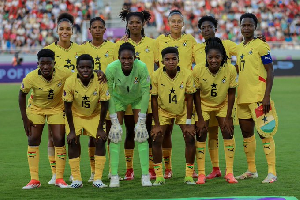Ghana's oil and gas upstream industry has been a key driver of the country's economy in recent years, with the sector contributing significantly to GDP growth and job creation. However, the industry has faced several challenges, including declining oil prices, high debt levels, and a lack of investment in exploration and production activities.
One of the potential implications of Ghana's decision to seek assistance from the IMF is the impact on the upstream industry. The IMF is likely to impose strict conditions on the country's economic policies, including austerity measures and fiscal consolidation. These measures could result in a reduction in government spending, including in the oil and gas sector.
Reduced government spending could have several implications for the upstream industry. For example, it could lead to a reduction in exploration and production activities, which could impact the country's oil and gas reserves and production levels. It could also lead to a delay or cancellation of planned projects, which could affect job creation and the supply chain.
Another potential implication of Ghana's decision to go to the IMF is the impact on investor confidence. The oil and gas sector requires significant investment, and any uncertainty or instability in the economy could deter investors from committing capital to the sector. This could result in a slowdown in new projects and a reduction in future production levels.
However, there are also potential benefits to Ghana's decision to seek assistance from the IMF. The IMF's involvement could help to address some of the underlying economic challenges facing the country, including high debt levels and fiscal deficits. This could create a more stable and attractive investment environment for the upstream industry.
Furthermore, the IMF's involvement could help to promote transparency and accountability in the oil and gas sector. The government could be required to implement measures to improve governance and reduce corruption, which could lead to a more efficient and effective use of resources in the sector.
In conclusion, Ghana's decision to seek assistance from the IMF could have implications on the country's oil and gas upstream industry. While reduced government spending and investor uncertainty are potential concerns, the IMF's involvement could also help to address some of the underlying economic challenges and promote transparency and accountability in the sector. With the right policies and investments, Ghana's oil and gas upstream industry can continue to contribute to the country's economic growth and development.
Opinions of Thursday, 13 April 2023
Columnist: BOATENG EMMANUEL















